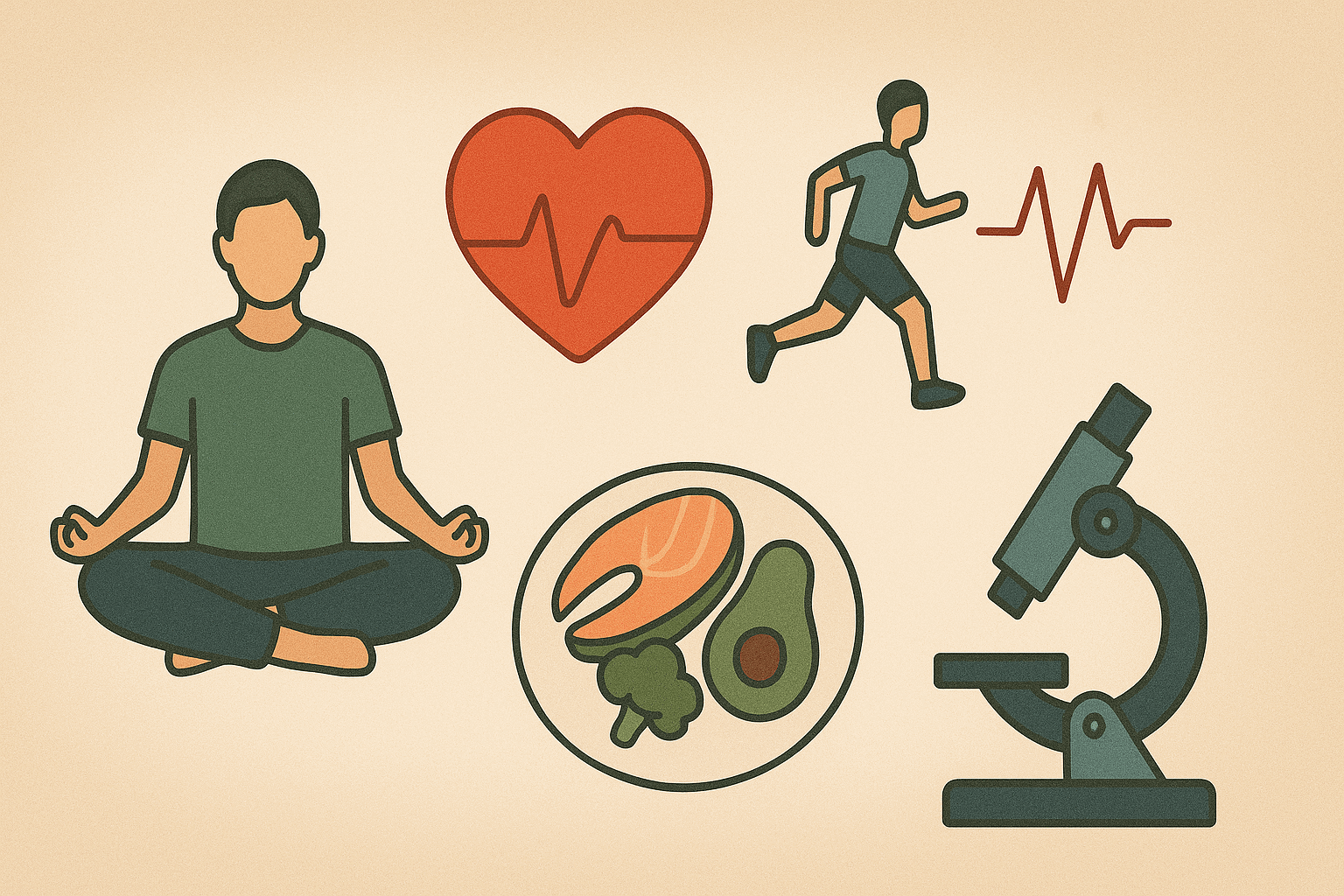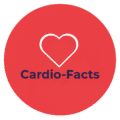
Preventing heart disease is not only possible — it’s a powerful and intentional choice. With heart disease remaining the leading cause of death worldwide, taking early action through scientifically proven lifestyle changes can make a life-changing difference. From what you eat to how you move and manage stress, every daily decision plays a role in protecting your cardiovascular system. In this article, we’ll explore five practical strategies, supported by strong scientific evidence, that can significantly reduce your long-term heart disease risk and help you live a longer, healthier life.
Why Prevention Matters
According to the World Health Organization and the American Heart Association, over 80% of heart disease is preventable through lifestyle modifications. Cardiovascular disease (CVD) doesn’t begin suddenly; it develops over years through the cumulative effects of high blood pressure, dyslipidemia, insulin resistance, smoking, and inflammation. Preventive efforts target these mechanisms early.
1. Eat for Your Arteries: The Science of a Heart-Healthy Diet
Numerous large-scale studies—including PREDIMED, DASH, and PURE—have shown that diet quality is directly linked to cardiovascular outcomes.
✅ Recommended Dietary Patterns:
- Mediterranean diet: Rich in fruits, vegetables, olive oil, nuts, legumes, fish.
- DASH diet: Emphasizes low sodium intake, high potassium, and fiber.
- Plant-forward diets: Moderate consumption of animal products with emphasis on whole grains and legumes.
🚫 Avoid:
- Processed meats
- Trans fats
- Excess added sugars and refined carbs
🔬 Scientific insight: The PREDIMED trial showed a 30% reduction in major CV events with a Mediterranean diet supplemented with extra-virgin olive oil or nuts.
2. Get Moving: Physical Activity as a Pillar of Prevention
Regular exercise improves endothelial function, reduces inflammation, increases HDL, and lowers blood pressure and insulin resistance.
📊 Guidelines:
- At least 150 minutes/week of moderate-intensity aerobic activity (e.g., brisk walking, cycling).
- Resistance training at least 2 days/week for additional benefits.
🧬 Scientific basis: A meta-analysis in Circulation (2018) confirmed that physical activity is associated with a 20–30% reduction in coronary heart disease risk.
💡 See also: Exercise for Heart Health: How Much Do You Really Need?
3. Control Blood Pressure, Lipids, and Blood Sugar
Silent risk factors such as hypertension, hyperlipidemia, and prediabetes contribute heavily to cardiovascular risk.
🩺 Targets (per ACC/AHA and ESC guidelines):
- Blood pressure <130/80 mmHg
- LDL-C <70 mg/dL (high-risk patients); <55 mg/dL (very high-risk)
- HbA1c <7% in diabetics (individualized)
🧪 Evidence-based interventions:
- Statins reduce major vascular events by ~25% per mmol/L LDL-C reduction (CTT meta-analysis)
- Lifestyle changes can reduce systolic BP by up to 10 mmHg (DASH, weight loss, exercise)
4. Quit Smoking and Limit Alcohol
🚭 Smoking increases the risk of coronary heart disease by 2–4 times. Benefits of quitting are seen within weeks:
- 20 minutes: heart rate and BP drop
- 1 year: risk of coronary disease halved
- 5–15 years: stroke risk similar to non-smoker
🍷 Alcohol: Small amounts (e.g., ≤1 drink/day) may be neutral or slightly beneficial, but excessive use increases blood pressure, arrhythmia, and stroke risk.
5. Sleep, Stress, and the Heart-Brain Axis
Chronic stress, sleep deprivation, and depression are independently associated with CVD.
🧠 Recommendations:
- 7–9 hours of quality sleep per night
- Mindfulness-based stress reduction (MBSR), yoga, and CBT can reduce BP and inflammatory markers
- Address psychosocial factors—per ESC 2021 guidelines, they are recognized modifiers of CV risk
Final Thoughts
Preventing heart disease isn’t about a single “magic bullet”—it’s about sustainable, science-based habits. The earlier these are adopted, the more powerful their protective effects.
References with Links
- Estruch R, Ros E, Salas-Salvadó J, et al. Primary Prevention of Cardiovascular Disease with a Mediterranean Diet. New England Journal of Medicine, 2013;368:1279-1290. 🔗 https://doi.org/10.1056/NEJMoa1200303
- Sattelmair J, Pertman J, Ding EL, et al. Dose Response Between Physical Activity and Risk of Coronary Heart Disease. Circulation, 2011;124(7):789–795. 🔗 https://doi.org/10.1161/CIRCULATIONAHA.110.010710
- Cholesterol Treatment Trialists’ (CTT) Collaborators. Efficacy and safety of more intensive lowering of LDL cholesterol: a meta-analysis of data from 170,000 participants in 26 randomised trials. The Lancet, 2010;376(9753):1670–1681. 🔗 https://doi.org/10.1016/S0140-6736(10)61350-5
- Visseren FLJ, Mach F, Smulders YM, et al. 2021 ESC Guidelines on cardiovascular disease prevention in clinical practice. European Heart Journal, 2021;42(34):3227–3337. 🔗 https://doi.org/10.1093/eurheartj/ehab484
- Arnett DK, Blumenthal RS, Albert MA, et al. 2019 ACC/AHA Guideline on the Primary Prevention of Cardiovascular Disease. Circulation, 2019;140(11):e596–e646. 🔗 https://doi.org/10.1161/CIR.0000000000000678
⏳ Don’t miss out!
Sign up for our newsletter today and unlock your free PDF: “7 Proven Tips to Protect Your Heart After 40.” Stay one step ahead in protecting your heart.
⚠️ Disclaimer: The content on Cardio-Facts is for informational and educational purposes only and does not constitute medical advice. Always consult a qualified healthcare professional regarding your health. Read our full disclaimer and legal policies.
